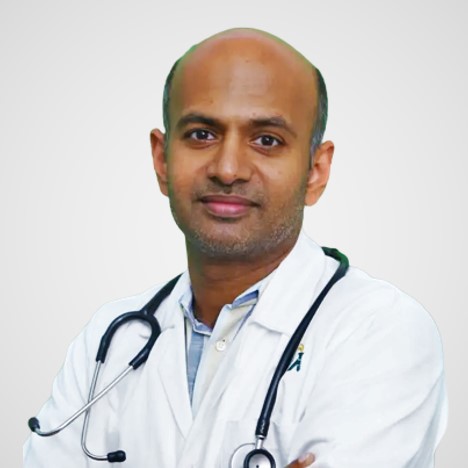General Surgery & Gastroenterology
General surgery is a specialty in the field of medicine that treats a wide variety of conditions. These conditions include gastroenterology, abdomen, breast, intestines, etc. They also specialize in surgical oncology, trauma, and critical surgeries. A general surgeon has the skills and competency to treat a wide range of diseases.
Gastroenterology is a field of medicine that treats conditions related to digestion. It deals with the stomach, esophagus, liver, gallbladder, intestines, and rectum. A surgeon not only treats conditions such as hernias, but he/she also removes cancerous growths and damaged parts of the organ from the body.
To know more, you can consult a general surgery doctor near you or visit a gastroenterology hospital in Hyderabad.

Why are general surgery and gastroenterology surgery done?
These are the factors why gastroenterology surgery and general surgery are conducted:
- Removal of diseased parts and tissues
- Biopsy of a suspicious growth
- Removal of an obstruction
- Improving physical and aesthetic appearance
- Transplanting organs
- Positioning organs back to their original positions
- Placing mechanical devices
What are the conditions treated by general surgery and gastroenterology?
These are the following conditions treated by general surgery and gastroenterology:
- Colon cancer
- Appendicitis
- Gastritis
- Constipation
- Iron deficiency/anemia
- Ulcers
- Irritable bowel syndrome
- Acid reflux - this is a condition where the acid goes back up the esophagus and causes severe heartburn
- Constipation
- Weight loss
- Rectal prolapse - this is a condition in which the intestines hang through the anus
- Hernia - A part of your intestine that bulges under your skin, causing pain
What are the types of general surgery and gastroenterology?
These are the types of surgeries that are conducted under general surgery and gastroenterology:
- Laparoscopic surgery - In this surgery, a thin tube with a camera called a laparoscope is inserted through a cut. Using small instruments, a surgeon performs surgery on the affected area.
- Endoscopy surgery - In this procedure, an endoscope is inserted through the nose, mouth, etc, to access the affected area. The surgeon performs the surgery with the help of an endoscope.
- Open surgery - This is the traditional method of surgery. In this procedure, the skin and tissues are cut. It allows the surgeon to get a clear view of the affected area.
What are the benefits of general surgery and gastroenterology?
These are the benefits of general surgery and gastroenterology surgery:
- Improves the quality of life of a patient
- Removes a tumor
- Removes a damaged part of the body
- Reduces pain and discomfort caused by the condition
What are the complications of general surgery and gastroenterology?
These are the complications that may arise after surgery:
- Infection - after surgery, there are chances of infection developing at the site of surgery.
- Pain
- Soreness
- Allergic reaction to anesthesia
- Blood clots
- Accidental damage to other organs during surgery
- Bleeding from the site of surgery
- Trouble breathing
- Trouble urinating
If you experience any of the above complications after surgery, please contact your doctor or visit the nearest hospital.
Request an appointment at Apollo Spectra Hospitals, Kondapur, Hyderabad.
Call 18605002244 to book an appointment.
Conclusion
General surgery is a specialty in medicine that treats a wide variety of conditions related to the abdomen, breast, intestines, etc. Gastroenterology is a field in medicine that treats conditions related to the stomach, esophagus, liver, gallbladder, intestines, and rectum. There are several benefits of doing surgery. They include removing the diseased part or tumor and improving your quality of life.
Your recovery time depends on the condition and the type of surgery you had. Please consult your doctor for further instructions.
Yes. Your doctor will tell you the number of follow-ups that will be required post-operation.
It depends on the type of surgery your doctor will perform. If it is an open surgery, then your doctor will do it in the operation theatre. Otherwise, other procedures are conducted in the outpatient department.
Our Doctors
DR. CHINNAYA PARIMI
MBBS, FACS (Fellow, ...
| Experience | : | 19 Years Experience |
|---|---|---|
| Speciality | : | General Surgery & Ga... | Location | : | Kondapur |
| Timings | : | Mon - Sat: 9:30 AM t... |
Our Top Specialities
NOTICE BOARD
CONTACT US
CONTACT US
 Book Appointment
Book Appointment



.svg)
.svg)
.svg)
.svg)








